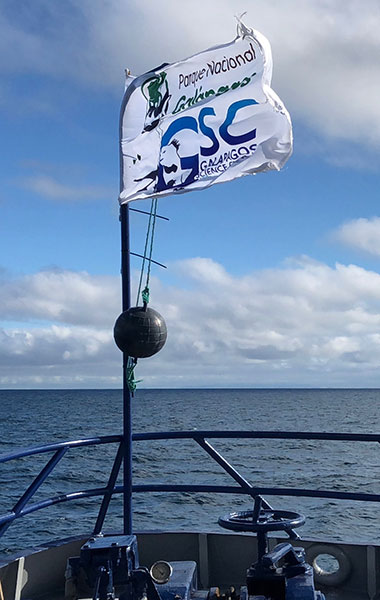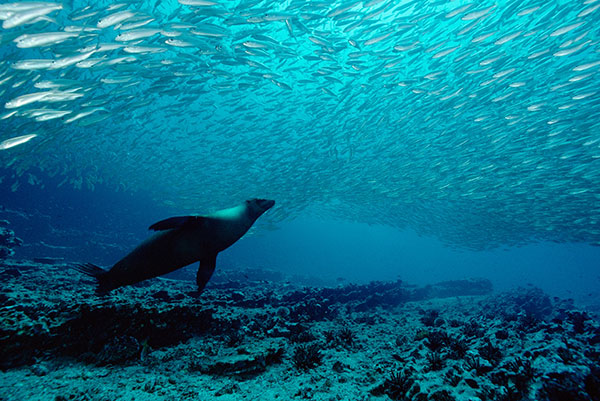Trophic Ecology
Investigating interactions between Galapagos Pinnipeds and climate change
The marine productivity levels around the Galapagos Archipelago and the high vulnerability that shown by Galapagos sea lions to global warming causes evident alimentary stress that is reflected in ecological adaptations of these marine predators.
In general sea lions are marine mammals adapted to coastal ecosystems that respond quickly to environmental perturbations with evident changes in the use of foraging strategies. For this reason, the study of trophic ecology may help to understand the ecological effects that climate change may produce on the Galapagos sea lion.


The goal of our research is to understand the trophic interactions in Galapagos sea lions’ populations. During last years, we deployed several monitoring to study foraging strategies based on multiple approaches to measure the diet flexibility and trophic behavior in relation to environmental variables.
In general sea lions are adapted to temperate-cold environments, where productive waters support their high energetic demands required to maintain their populations. The Galapagos sea lion represent one of the few cases of adaptation to a semi-tropical environment such as that of the Galapagos Archipelago. In this scenario, this project represents a unique opportunity to study specific aspects of the Galapagos sea lion trophic ecology.
